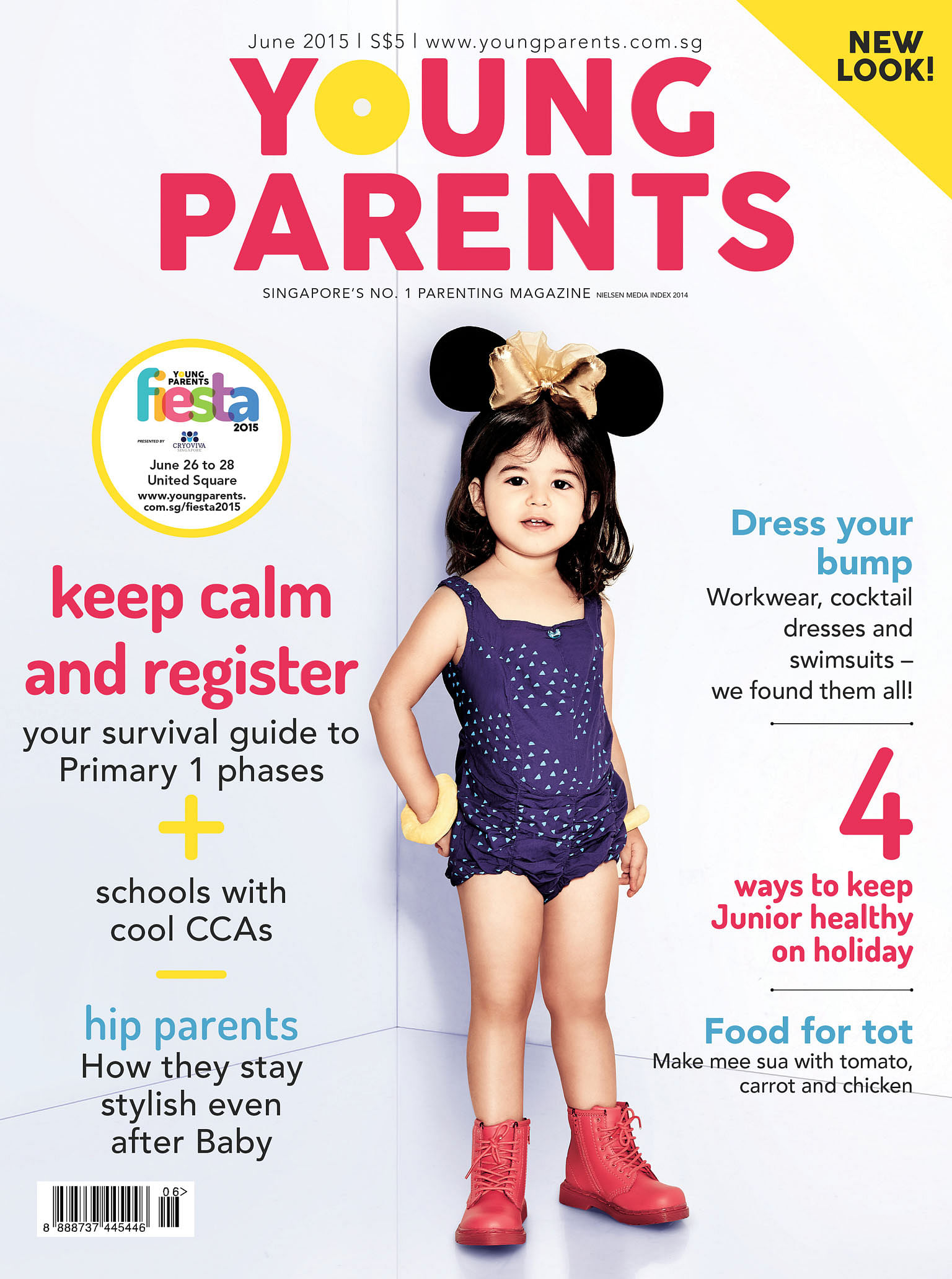WEEK 4: Take a folic acid supplement, and quit bad habits
If you are not on folic acid, start now. Ideally, you should have built up your stores at least a month before trying to conceive.
This B vitamin protects your newborn against neural tube defects such as spina bifida, said Dr Tan Wei Ching, a senior consultant at the department of obstetrics and gynaecology at Singapore General Hospital.
Cut bad habits, such as smoking and excessive drinking, said Dr Law Wei Seng, a consultant obstetrician and gynaecologist at Mount Elizabeth Novena Hospital.
These habits can cause complications like stillbirth, premature delivery and miscarriage. They also put your child at risk of birth defects, as well as learning and behavioural problems later in life, Dr Law added.
WEEK 6: Book your first antenatal appointment

Your gynaecologist will do an ultrasound examination to confirm your baby's size and if he is in the right location, said Dr Tan.Do not delay this visit beyond week 12. Certain screening tests, such as that for Down syndrome, are usually done between week 11 and 14.
WEEK 8 : Beat morning sickness
That queasy feeling usually strikes between week 8 and 10, and should ease after week 12, said Dr Tan.
To keep nausea at bay, she suggests eating small regular meals throughout the day and snacking on plain crackers and biscuits. It also helps to sip on hot ginger tea and avoid triggers, such as spicy food.
But talk to your doctor if you have such severe morning sickness that you can't keep food or fluids down.
WEEK 16: Sign up for antenatal classes
This is the perfect time to attend workshops on childbirth and parenthood - with your husband, of course. Topics include managing labour, breastfeeding and common newborn issues.
Such classes are especially helpful if you prefer hands-on practice, said Ms Yasa Yong Nyuk Yin, a senior lactation consultant at Mount Elizabeth Novena Hospital.
WEEK 18: Firm up confinement plans
Do you need an extra pair of hands or someone to prepare meals? You will need ample time to find a suitable confinement nanny or meal caterer, advised Ms Wong Boh Boi, assistant director (clinical services) of Thomson Parentcraft Centre at Thomson Medical Centre.
WEEK 20: Pamper yourself
A soothing prenatal massage with gentle strokes can help improve blood circulation, reduce swelling and relieve stress and fatigue, said Ms Mythi Ally Vijay, managing director of Babies Bellies Javanese Massage and Spa.
But do get the green light from your doctor first, especially if you are spotting, or have a low-lying placenta or other medical conditions.
WEEK 24: Tour the hospitals
Make appointments with a few maternity hospitals to check out their delivery suites, suggests Ms Yong. This allows you to compare the services, facilities and prices. During your tour, take note of where you should go and who to approach on the day of admission.
WEEK 28: Draw up a birth plan
Work out the nitty-gritty details, including pain management and other requests, such as skin-to-skin contact with your baby immediately after birth, advised Dr Law.
Outline your plan in the following order: labour, delivery and immediate postpartum. Keep it simple and within one typed page so it is easy for the doctor and midwives to read.
Bear in mind, though, that this is just a wish list; your doctor has to do what's best for you on the day of delivery, especially in an emergency.
WEEK 30: Consider cord-blood banking
If both you and your baby are in good health, the late second trimester or early third trimester is a good time to think about cord-blood banking, said Dr Tan.
This procedure saves and stores a newborn's blood from the umbilical cord, which contains stem cells that could be used to treat medical conditions in the future. There are three private cord-blood banks here.
While some parents see this as a form of "insurance" for their child, Dr Tan pointed out that the probability of someone developing a disease that is treatable with his own cord blood is "very low".
Or, consider donating your baby's cord blood to the non-profit public Singapore Cord Blood Bank. Your kind act may save someone who needs a haematopoietic stem-cell transplant.
WEEK 37: Pack your hospital bag
Besides toiletries and other essentials, your bag should contain important documents - antenatal records, blood-test results, identification documents, as well as your marriage certificate for birth registration and claims, advised Ms Yong. You may want to take along health supplements and nipple cream. Consider packing your breast pump so the nurses or lactation consultants can help you with latch-on problems, said Ms Yong.
WEEK 39: Count down to D-day.
Check if you have:
•stocked up on baby essentials, such as diapers and feeding gear;
•prepared breastfeeding items like a breast pump, nursing bras, nursing pads and nipple cream;
•confirmed a confinement plan;
•packed your hospital bag; and
•planned your route to the hospital.
Watch for signs of labour, including painful contractions, clear fluid gushing down the leg or red, sticky mucus, said Dr Law. If in doubt, contact your midwife or doctor.


